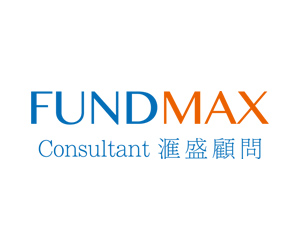Want to be in the loop?
subscribe to
our notification
Business News
RESOLUTION 10-NQ/TW FACILITATES PRIVATE ECONOMIC DEVELOPMENT
After more than two years of implementing the Central Resolution 10-NQ/TW on “developing the private economy into an important driving force of the socialist-oriented market economy”, the Vietnamese business community has made robust progress and contributed much to the economy.
Important role in the national economy
According to many economic experts, Resolution 10-NQ/TW is an “enlightening resolution” for the private economic sector, handing it a clear, equal legality with other backbone state economic blocks. Noticeably, entrepreneurial spirit spreads widely in society and the robust development of the private economy in some industries such as construction, processing, manufacturing, automobile, air transport, finance and banking has shaped powerful and potential national brands for Vietnam. According to statistics, more than 3,000 innovative startups are in operation and many of them are very successful.
The private sector has made a significant contribution to rapid GDP expansion and economic growth of Vietnam. This sector accounts for over 40% of the gross domestic product (GDP), 30% of State budget revenue and 85% of the labor force. These shares are showing signs of growth, boosted by economic growth. By 2018, the private economy was estimated to make up 42.1% of the GDP which tended to be increasing in the future.
Dr. Vu Tien Loc, President of the Vietnam Chamber of Commerce and Industry (VCCI), said, it is safe to say that the private sector is not only comprised of 700,000 privately run enterprises but also household, individual businesses and foreign-invested companies. Then, the private sector has accounted for 61% of the country’s GDP, not a modest 10% as previously calculated. And, in this broad sense, it is playing an important, key role of the Vietnam’s economy.
Rapid policy response to support private development
According to Mr. Phan Duc Hieu, Vice Chairman of the Central Institute for Economic Management (CIEM), Vietnam needs a more rapid policy response from the Government to boost the development of the private business community. For example, the Government often takes 1-2 years to deal with a matter, as seen in the struggling story of finding a strategic approach to the Fourth Industrial Revolution. In fact, private enterprises are struggling to compete with their rivals and encounter a lot of tough obstacles in their business operations and innovations. For example, current policies have not caught up with the development of new types of 4.0 transportation services such as Grab, Goviet and Be. In reality, good after-sales services and competitive prices of these new types of transport greatly benefited Vietnamese users like taking them less cost and time. For that reason, Vietnam needs to gradually move toward 3-6 months instead of 1-2 years now in adjustment by policy.
“This lesson is popular in the world. Even, many countries are changing their economic management mechanisms and measures, not only speeding up reforms but also increasing policy response,” he said.
Mr. Tran Viet Anh, Vice Chairman of Ho Chi Minh City Business Association, said that authorities need solutions to remove capital barriers for businesses because a lot of small and medium-sized enterprises (SMEs) have to secure their loans with their assets, even family assets of owners. Therefore, they very much need banks to use other operating factors such as cash flow and project prospects to increase credit accessibility. Banks should not necessarily require SMEs to use their property to secure loans because this is a too high barrier for them.
According to VCCI President Loc, to revive private economic development, the Vietnamese Government has made great efforts to improve the business and investment environment in recent years and has achieved encouraging results. However, comparing with the region and the world, the Vietnamese investment and business environment is still not as good, convenient or secure. Administrative procedures are troublesome and formal and informal costs are still very high.
Reforming administrative procedures and reducing business conditions are not really substantive. This has been hindering extensive policy reform efforts of the Vietnamese Government. Hence, in the coming time, VCCI will focus on fulfilling its tasks assigned by the Government of working as an effective focal point, an honest and objective voice for thoughts and aspirations of the Vietnamese business community, suggesting the Party and Government to promptly abolish and realign regulations, provisions and laws that hinder business operations of the Vietnamese private business community.
Source: VCCI
Related News

VIETNAM’S GDP TO GROW 5.5% THIS YEAR – WB
This forecast is based on the assumption of a moderate recovery in manufacturing exports in 2024, fueled by rebound growth of 8.5% year-on-year in the fourth quarter of 2023 and 17.2% year-on-year in the first quarter of 2024, reflecting strengthening global demand, said Dorsati Madani, senior country economist at the WB in Vietnam.

FARE REFUND FOR VISA REJECTION
Cathay Pacific will offer full refunds for cases of visa rejection to provide you with the confidence to explore the world with ease. If you are planning to fly to a destination that requires an entry visa, you can now book with greater peace of mind.

FOUR COMMODITIES POST Q1 EXPORT VALUE OF OVER 5 BILLION USD
The total export turnover of agricultural, forestry, and fisheries products in the first three months of 2024 is estimated to reach 13.53 billion USD, an increase of 21.8% compared to the same period of 2023.

MOIT PROPOSES SCHEME TO BOOST RENEWABLE ENERGY PROCUREMENT
The proposed Direct Power Purchase Agreement (DDPA) mechanism, outlined in the draft decree, targets organisations and individuals consuming electricity from the 22kV power grid or higher, with a monthly consumption averaging 500,000kWh. However, residential households are excluded from direct procurement.

REAL ESTATE BONDS PLACE PRESSURE ON ISSUING FIRMS
The ministry’s recent report underscores concerns within Vietnam’s corporate bond market for 2023 and 2024. It emphasizes the critical need to address hindrances to the real estate sector in line with the objectives provided in Government Resolution No. 33/NQ-CP, which aims to stabilize the industry.

DA NANG CUSTOMS FOCUSES ON DEVELOPING CUSTOMS-BUSINESS PARTNERSHIPS
Da Nang Customs Department issued an action plan for developing customs-business partnership in 2024. One of the new events this year is the workshop on “Settlement reports for enterprises engaged in outsourcing, export production and export processing” held in Da Nang Customs Department on April 16, 2024.

































